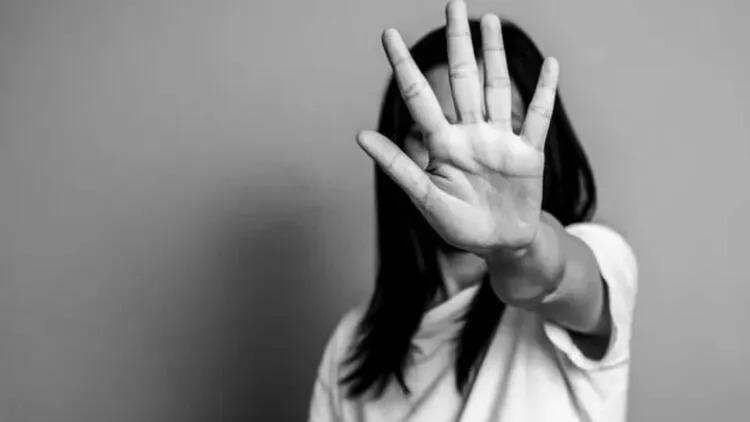
Rape is being used in conflict as a deliberate military strategy, and is feared most by women and girls when the shooting starts.
They are right to be afraid. It is vital to highlight just how shockingly common rape and other forms of sexual and gender-based violence have become in humanitarian settings worldwide.
Conflict-related sexual violence is on the rise globally – in a report of the U.N. Secretary General to the U.N. Security Council, 49 global parties were noted as being credibly suspected of committing or being responsible for patterns of rape or other forms of sexual violence in situations of armed conflict in 2021.
The testimony of this woman from Central Equatoria in South Sudan is unfortunately all too familiar. Attacked by soldiers in her own home, she told how, “After one man bit me, another pointed the gun directly on my chest and said if I don’t accept them then he will kill me.” As this human right violation played out, the woman’s terrified children were nearby.
Sexual and gender-based violence flourishes whenever armed conflict occurs, because fear, chaos and confusion provide perfect cover for the perpetrators. Conflicts exacerbate gender inequalities that disproportionally affect women and girls worldwide. Conflicts and natural disasters break up families, displace women, children, and adolescents, and force them into refugee camps and other unsafe settings, where they are far more likely to experience gender-based violence and are extremely vulnerable to physical, sexual, and psychological harm. For instance, violence against women and girls accounted for 97 percent of conflict-related sexual violence cases reported in 2021.
A review of 19 studies across 14 countries estimated that approximately 21 percent of displaced women experienced sexual violence. In desperate circumstances, women and girls may be forced to trade sex for food, money, and other resources they need to survive. Up to a third of girls living in a humanitarian setting report that their first sexual encounter was forced.
Health emergencies, notably COVID-19, and natural disasters, including extreme climate events, are also major factors. Before COVID-19, one in three women worldwide experienced physical or sexual violence by an intimate partner. In 2021, a rapid review undertaken by U.N. Women in four countries found that more than half of women surveyed reported that they or a woman they know experienced physical violence and verbal abuse since the onset of COVID-19.
Long-standing barriers to reporting and accessing services, such as stigma, fear of retaliation, and weak rule of law institutions have been exacerbated by the ongoing pandemic. Additionally, movement restrictions due to COVID-19 continued to prevent survivors of sexual violence from accessing essential services.
Climate change and natural disasters cause poverty, displacement, conflict, and loss of access to education. They lead indirectly to an increase in child marriage, which is recognized in international law as a form of gender-based violence. Tragically, child marriage is just one outrage on a long list. In 2018, the U.N. verified more than 24,000 grave violations against children and adolescents in 20 countries, including recruitment of child soldiers, killing or maiming, and sexual assault or abduction.
Targeted action
These atrocities will not go away of their own accord. We urgently need targeted action and interventions to prevent and respond to sexual and gender-based violence, particularly in humanitarian and fragile settings. Survivors require targeted sexual and reproductive health services, and social care and need to participate in relevant decision-making. Yet, as evidence shows, such care and services are often unavailable or inaccessible. They also claim justice and accountability for perpetrators. Yet, most of these crimes go unpunished and survivors are left without reparations and remedies.
At global level, there is a need for concerted multilateral efforts for comprehensive sexual reproductive health and rights including the prevention of sexual and gender-based violence. We must also ensure gender responsive and age-sensitive reparations for all survivors.
At national level, countries need to establish enabling and protective frameworks, and focus resources, to protect the physical and mental health of refugees and others at risk of personal violence and displacement because of conflict. Countries should earmark long-term investments and social protection schemes to mainstream this agenda throughout emergency humanitarian responses and in programming across all sectors. This includes investments in capacity strengthening, monitoring, and data analysis, and essential training of health care workers and other relevant sectors.
We are facing a global plague of sexual and gender-based violence. It feeds off the lawless chaos of conflict, the unprecedented disruption of COVID-19, and the growing destruction wrought by climate change.
The United Nations Committee on the Elimination of All Forms of Discrimination against Women has elaborated guidance on the gender-related dimensions of disaster risk reduction in the context of climate change and women in conflict prevention, conflict and post-conflict situations. We have the tools to end this plague, but it will require an integrated partnership approach at all levels. Our actions must be guided by key human rights principles — equality and non-discrimination, participation and empowerment, accountability and access to justice.
* Rt. Hon Helen Clark is the PMNCH Board Chair, Michelle Bachelet is the United Nations High Commissioner for Human Rights, H.E, José Manuel Albares is the Minister of Foreign Affairs, Spain. This piece was originally published in BMJ.